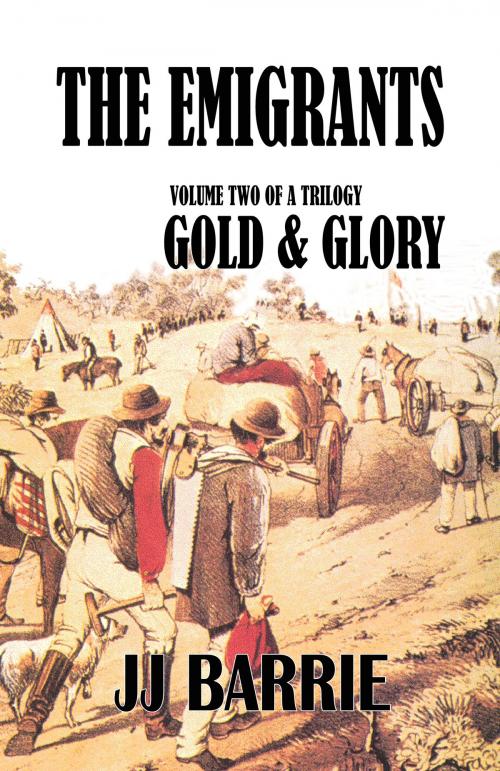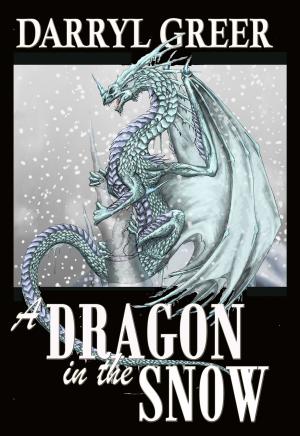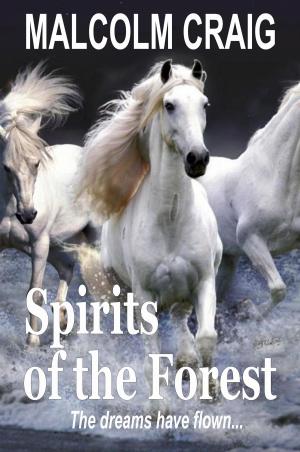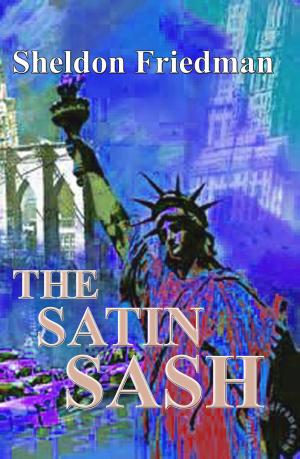| Author: | JJ Barrie | ISBN: | 9781310393426 |
| Publisher: | CUSTOM BOOK PUBLICATIONS | Publication: | September 25, 2014 |
| Imprint: | Smashwords Edition | Language: | English |
| Author: | JJ Barrie |
| ISBN: | 9781310393426 |
| Publisher: | CUSTOM BOOK PUBLICATIONS |
| Publication: | September 25, 2014 |
| Imprint: | Smashwords Edition |
| Language: | English |
Transport and the tyranny of distance was the real problem for the colony of New South Wales.
Distance limited the how far wheat, the most valuable of the farm crops, could be transported but it was generally no more than thirty or forty miles. Cattle, fattened on the lush pastures of the coastal ranges, walked to market losing a little fat but the beef the small population could consume, was limited. While hides were exported back to England by the thousand, it was not a proposition to raise cattle for skins alone.
Only sheep were valuable enough to show a profit – a ton of wool worth ten times that of a ton of wheat. Wool could afford the cost of transport to the ports, and across the world where growing markets, created by the woollen mills of England and Europe, had an insatiable appetite for the fleece. Flocks of sheep doubled every few years but needing huge acreages, most squatted their flocks as settlers claimed larger and larger tracts of the colony.
The bullock driver brought the bales after shearing down dusty bush tracks to the Sydney merchants, sometimes hundreds of miles. Swaying from side to side, with wheels creaking, accompanied by a volley of strange oaths and the sharp crack of the stock whip, the monstrous beasts strained at their yokes with the attendant kelpies nipping their heels. Close to the near wheel walked the driver, tall and broad-shouldered – a sunburnt care-worn man with long shaggy hair covered by a grubby, wide brimmed, sweat-marked hat. A months beard covered his dusty face. Dressed in the trademark dark blue cotton shirt with sleeves rolled to the shoulders of his browned, hairy arms, coarse moleskin trousers and calf-half leather boots completed his uniform. A wizened man, more shabbily dressed in much the same gear, trotted along the off side. With three mongrel dogs chained under the back axle of the dray, another load of the golden fleece was off to market.
The hard-working pioneer squatter won in time. Some even became extremely wealthy, and understandably possessive of their lands. Against the world trend, many sought to continue the transportation of convicts providing cheap labour. Failing in these endeavours, the emigrants changed the balance, supplying the lifeblood of the colony – labour.
Then they found gold!
Transport and the tyranny of distance was the real problem for the colony of New South Wales.
Distance limited the how far wheat, the most valuable of the farm crops, could be transported but it was generally no more than thirty or forty miles. Cattle, fattened on the lush pastures of the coastal ranges, walked to market losing a little fat but the beef the small population could consume, was limited. While hides were exported back to England by the thousand, it was not a proposition to raise cattle for skins alone.
Only sheep were valuable enough to show a profit – a ton of wool worth ten times that of a ton of wheat. Wool could afford the cost of transport to the ports, and across the world where growing markets, created by the woollen mills of England and Europe, had an insatiable appetite for the fleece. Flocks of sheep doubled every few years but needing huge acreages, most squatted their flocks as settlers claimed larger and larger tracts of the colony.
The bullock driver brought the bales after shearing down dusty bush tracks to the Sydney merchants, sometimes hundreds of miles. Swaying from side to side, with wheels creaking, accompanied by a volley of strange oaths and the sharp crack of the stock whip, the monstrous beasts strained at their yokes with the attendant kelpies nipping their heels. Close to the near wheel walked the driver, tall and broad-shouldered – a sunburnt care-worn man with long shaggy hair covered by a grubby, wide brimmed, sweat-marked hat. A months beard covered his dusty face. Dressed in the trademark dark blue cotton shirt with sleeves rolled to the shoulders of his browned, hairy arms, coarse moleskin trousers and calf-half leather boots completed his uniform. A wizened man, more shabbily dressed in much the same gear, trotted along the off side. With three mongrel dogs chained under the back axle of the dray, another load of the golden fleece was off to market.
The hard-working pioneer squatter won in time. Some even became extremely wealthy, and understandably possessive of their lands. Against the world trend, many sought to continue the transportation of convicts providing cheap labour. Failing in these endeavours, the emigrants changed the balance, supplying the lifeblood of the colony – labour.
Then they found gold!















